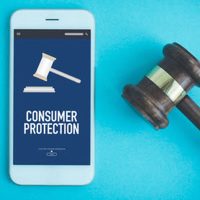Supplement Claims That Violate Consumer Protection Laws

A major consumer protection issue that has emerged since the onset of COVID in 2020 involves supplement products that claim to help cure, treat, prevent, and/or mitigate the illness. According to the FTC, these claims violate both the FTC Act and the COVID-19 Consumer Protection Act, opening a number of companies that sell the products up to litigation from consumers.
In many of these cases, the companies will include quotes from consumers validating their product, and will take to social media to promote their products as well. Companies will also sometimes claim in their advertising that their claims are backed by valid scientific evidence.
Illegal Acts
Legally speaking, many of these companies can be held accountable for false or unsubstantiated efficacy claims and false representation regarding claims that their products have been scientifically proven to treat x, y, and z, as well as truth-in-advertising laws. This can occur when no human clinical trials have been conducted with respect to these products or their individual ingredients, and affects consumers ability to sue over these promises because it is illegal to advertise products that can cure, prevent, or treat any human disease “unless they possess competent and reliable scientific evidence” including (when appropriate) “well-controlled human clinical studies substantiating that the claims are true at the time they are made.”
And the claims aren’t just related to efficacy: Companies have also been sued for claiming that their products are made in the U.S. even when they are not; in addition to any other false claim concerning the product that could lead a consumer to purchase it. Note also that steps taken to simply change the product’s name (for example, to remove the specific name of the illness or disease it claims to be treating) – if the company is still claiming explicitly or implicitly that it prevents, mitigates, or treats any disease – still violates the law.
“Scientific Studies”
When it comes to scientific studies claims for a number of supplements, you will often see companies cite to studies, while actually ignoring those studies’ limitations and conclusions and instead cherry picking what is beneficial to them; for example, farming to mention that the studies contained very small numbers of participants for a very short period of time and did not investigate the effects of using the one ingredient on their own.
Penalties
The COVID-19 Consumer Protection Act provides for civil penalties, monetary relief, and other remedies for this exact reason; the law makes it illegal for any company to engage in deceptive acts or practices with respect to commerce associated with the cure, diagnosis, mitigation, prevention, or treatment of COVID-19 or a government benefit related to COVID-19, and treats these violations as violations of the FTC Act. Marketers who make detective claims are subject to a civil penalty of almost $44,000 per violation, as well as potentially having to return product fees to consumers.
Columbus, Ohio Consumer Protection Attorneys
If you have any questions or concerns about claims made by a product that you have purchased, contact our Columbus consumer law attorneys at the Kohl & Cook Law Firm LLC today to find out how we can help.
Sources:
ftc.gov/business-guidance/blog/2022/11/ftc-challenges-supplement-claims-under-covid-19-consumer-protection-act
ftc.gov/legal-library/browse/statutes/covid-19-consumer-protection-act-2021-consolidated-appropriations-act
